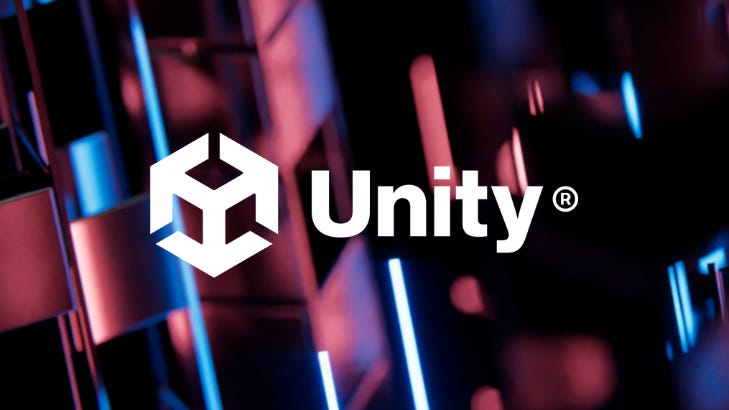Unity's per-install fee will be based on "estimates" and Unity may not spot "fraudulent" installs in advance
Company attempts to clarify following dev backlash
After a couple of days of furious game developer reactions, game engine company Unity have backtracked a teensy bit on their plan to charge developers who meet certain revenue and copies-sold thresholds a "runtime fee" for every installation of their game.
The company will only make developers pay extra for the first installation of a game on a new device - so no fees for reinstallations, in theory, and no prospect of spiteful players "install bombing" games to drive up costs for their creators. However, the company haven't stated how or indeed, if they can distinguish legitimate from illegitimate installations in advance, seemingly because their method for tracking installations is based on "estimates" using a proprietary data-gathering system, which they aren't able to discuss in depth.
"Once you meet the two install and revenue thresholds, you only pay the runtime fee on new installs after Jan 1, 2024," reads a Unity statement on Ecks. "It's not perpetual: You only pay once for an install, not an ongoing perpetual license royalty like a revenue share model."
For those just joining us, here's a quick recap of the proposed new pricing model and Unity account framework at the time of writing. As of 1st January 2024, developers with Unity Personal and Unity Plus accounts who have made $200,000 in the last 12 months and have 200,000 lifetime installs will pay $0.20 per new install (that's every new install per device, after the new policy launch date).
Developers with Unity Pro and Unity Enterprise who have made $1,000,000 in the last 12 months, and have 1,000,000 lifetime game installs will pay between $0.01 and $0.15, depending on how many times their games are installed per month.
All that's assuming you don't live in an "emerging market region" - as in, any country other than the United States, Australia, Austria, Belgium, Canada, Denmark, Finland, France, Germany, Ireland, Japan, Netherlands, New Zealand, Norway, Sweden, Switzerland, South Korea and the UK. Unity developers from emerging markets pay $0.02 per install if you're on Unity Personal or Plus, $0.01 per install If you're on Unity Pro, and $0.005 if you're on Unity Enterprise.
So how will Unity track and invoice developers for game installs? "We leverage our own proprietary data model and will provide estimates of the number of times the runtime is distributed for a given project," the company state on their much-updated FAQ page. "This estimate will cover an invoice for all platforms." The company add on their forums that "We believe it gives an accurate determination of the number of times the runtime is distributed for a given project."
As for fraudulent installations, such as people repeatedly reinstalling games out of malice towards their creators, "we are not going to charge a fee for fraudulent installs or 'install bombing,'" reads the FAQ. "We will work directly with you on cases where fraud or botnets are suspected of malicious intent." So in other words, there's no way to stop people doing this at first? Developers have to ask for the money back after the fact?
Unity have further clarified that the runtime fee per install extends to early access versions of games, but not "trials, partial play demos, and automation installs (devops) charges". It doesn't apply to web and streaming games, either, or "charity-related installs" such as "charity bundles/initiatives".
It's all rather byzantine, isn't it? Whatever your thoughts on the proposed pricing changes, this will surely go down as one of the worst-communicated policy rollouts in industry history, with each clarification generating fresh questions. Unity appear to have given very little thought to some of the more obvious implications of their shift to a per-install pricing structure. I haven't seen a mess like this since the announcement of the Xbox One.
Amid the chaos, the company continue to defend their new policy, posting on Eggs that "the price increase is very targeted" and that over 90% of Unity customers don't meet the criteria for the runtime fee, and won't be affected by the charge. "This means a low (or no) fee for creators who have not found scale success yet and a modest one-time fee for those who have."
Speaking to Axios, Unity exec Marc Whitten insisted that "our core point with this is simply to make sure that we have the right value exchange so that we can continue to invest in our fundamental mission to make sure that we can deliver the best tools for people to make great games."
"It's not fun to get a bunch of angry feedback on any particular day," he added. "And I think that that is us needing to clarify some of these points. But we're we're listening and we will continue to make sure that we deliver the best that we can."

